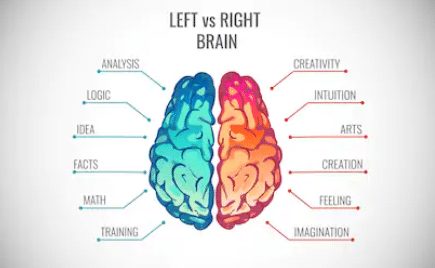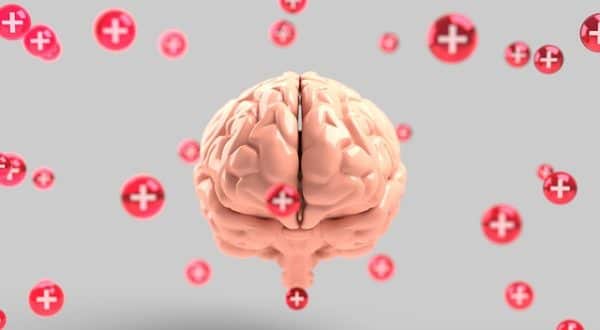Table of Contents
Our brain tells us what to do, what to react to, what to think and what to say. It is the brain that remembers the faces of strangers on the streets or in the streets and protects us from worry.
We rely on the brain to survive and to learn anything, but this is the body part about which much is still secret. Every year, new information from science is revealed about these amazing organs, and in 2019, there are amazing details about the brain.
In fact, some of the results are staggering. Here’s what we managed to know about the human brain in 2019.
The Strange World of Dreams
People experience a variety of emotions during sleep, even with anger, this was revealed in medical research, in which researchers tried to find out from a mental activity analysis that someone with depressing dreams. Or not, they examined the brain parts that help control the expression of emotions and solve problems.
In these areas called the frontal lobes, activity before and after sleep revealed that an individual could see anger or even a dream. When we are relaxing, the brain releases alpha brain waves. But sometimes the waves emit too much, which reduces the functions of the cerebral area that helps control anger.
An analysis of brain waves in 17 people found that this is what happens during sleep; people who have these activities during sleep are more likely to have similar dreams.

Isolation And Effects On The Brain In Antarctica
The effects of loneliness on the human mind have been reported, with one research looking at 9 individuals who had been alone in Antarctica for more than a year and discovered that their brains had become smaller.
Before leaving and returning to Antarctica, researchers compared their mind scans and discovered that the volume of the brain, such as the hippocampus (a part that helps to improve learning and memory), decreased during that time.
Additionally, the protein levels in the minds of a rat called BDNF. It helps in the development and survival of new nerve cells, are essential for new brain connections.
Now researchers are trying to find sources that can help prevent loneliness from shrinking in people living alone.

Cerebral Mind Bulb
A group of scientists is stunned to find that there are some people in the world who can still smell when the most important part of their brain is missing the ability to smell.
This section, called Olfactory Bulbs, is located in the front of the brain that analyzes information about nasal odor.
Researchers discovered this through a brain scan of a 29-year-old woman who could smell like normal people. Although olfactory bulbs were missing in her brain. Later, she revealed the same thing in 2 more women who did not have this part of their mind but still could smell it.
However, scientists did not know how this magical ability came to be in women. But they believed that another part of the mind plays the role of olfactory bulbs. And it also shows the brain’s ability to mold itself.
Mind And Gravity
Some animals find their way to the unseen gravity field, and now it has been discovered that some people are capable of sensing the planet’s magnetic field, but how is this not clear.
In a March 2019 research, scientists scanned the minds of 34 people who were instructed to sit in a dark test chamber with an artificial magnetic field.
Brain analysis revealed that 4 out of 34 people reacted strongly to the magnetic field moving from the northeast to the northwest. But this did not happen in other directions. All four of them had a mind wave indicating that the brain was detecting a signal that was potentially magnetic.
It is unclear why some people react to the magnetic field while others do not. It is also unclear how the mind recognizes these signals. But it has been revealed in the past that there are numerous small magnetic particles in the human brain that potentially play a role in this regard.
Eliminating The Fear Of Death
Every human being has to die one day, but it is our brain which proves to be a shield against our idea of ??death. That is, the mind does not allow the idea that one day we will die. By the way, the brain uses predictive information to predict similar situations in the future. And that means the brain can predict that you will one day die.
But scientists discovered that information about our own death thought was lost in the brain process. For this purpose, the response of the brains of 24 people was observed when the words associated with death were shown to them. The scale of the activity of their minds showed that the brain’s predictive mechanism was based on the individual’s own death. The idea stops working.
It is unclear why this happens, but scientists think that the awareness of his own death can create fear in a person. This will prevent him from moving forward in life or taking risks for various tasks.

Brain Cleansing
Scientists have long known that brain activity varies greatly during sleep. But for the first time in 2019 it was discovered that when humans sleep. The nerve cells flow out of the blood as soon as they sleep and a fluid-like fluid begins to flow. That cleanses the brain.
Scientists at Boston University for the first time succeeded in taking pictures of the brain process during sleep. This will help to understand mental disorders.
Care Spindle fluid is found in the spinal cord of the spinal fluid (CSF). And is believed to clear the toxins from the brain, leading to dementia.
Professor Laura Louis, who is on the research team, said that this is a dramatic effect; CSF does this during sleep, something we did not even know before.
During the research, 13 healthy individuals aged 23 to 33 years were diagnosed with a brain MRI scanner.
In addition, scientists monitored a variety of activities in the minds of volunteers and examined the nerve cells by electrodes. While MRIs showed the presence of oxygen-rich blood in these nerve cells. Another type of MRI research team also examined CSF activity in the minds.
He noticed that during sleep, electrical signals, also known as delta waves. Later appeared, after a few seconds blood begin to flow out of his head and CSF began to fill his brain. Researchers say we were shocked to see this because it was very shocking.
Alzheimer’s (the most common type of dementia) is debilitating and debilitating in patients with dementia, resulting in impaired blood circulation in the brain, and cleaning of CSF is not complete. As a result, toxic protein begins to accumulate and memory is impaired.
The brain’s Amazing Ability To Mold Itself
The brain has an amazing ability to adapt and adapt to the condition, which is expressed in a small group of people who have lost half their mind as a result of childhood epilepsy. Despite deprivation of over 50% of the mind, the mind functions continuously.
During the research, scientists analyzed the brains of six people aged 20 to 30 years. 50% of them were lost during the first 3 months to 11 years and compared to the brains of healthy people.
Brain scans have shown that half of the brain’s parts work together in the same way that a healthy brain does. They also discovered that different brain parts work together despite deprivation, and this proves that the brain is capable of molding itself despite large-scale deprivation.

Specific Storage For Language Learning
Your brain needs storage to master a language. One research found that the brains of average English-speaking adults require 12.5 million bytes or 1.5 megabytes of storage.
The brain needs more storage for the meaning of words than just syntax for so many details of the language. In good conditions, an adult can recall one to two thousand bits of their native language a day. But in the worst case, the rate may be 120 bits.
‘Living’ The Dead Brain
Scientists claim to have been able to restore circulation and cellular activity to the brain of the dead animal several hours after their death.
In this experiment, a group of scientists said that the cell’s death span is long and in some cases it may be possible to suspend or reverse. Researchers have developed a brain X-ray system for the analysis of dead brains that insert synthetic blood into the brain arteries.
The fluid was injected into the minds of 32 dead animals 4 hours after their death and left for 6 hours. Later scientists discovered that it protected the brain cell structure, reduced cell death rates. And some of the cellular activities were restored.
Scientists say that it did not appear in the brain. It is something that happens when conscious or conscious, which scientists ask. What does it mean then to claim that the mind is alive? Currently this research are done on animals and not on humans.

Hidden Consciousness
In some patients with a coma or anesthesia, symptoms of ‘latent consciousness’ appear. One research analyzed the brain waves of more than a hundred patients who lost consciousness. Due to a traumatic injury, and discovered that every one of the 7 patients had a very deep brain activity within a few days of the injury.
Patterns or occult consciousness when it requires to shake hands. This indicates that the patients understand the instructions, but are unable to move. After one year 44% of the patients showed signs of latent awareness which was active for at least 8 hours daily.
Percentage of patients did not show any initial symptoms of this latent awareness. And the researchers said that the patients in whom the symptoms appeared were more likely to recover than other patients.
SEE ALSO:

